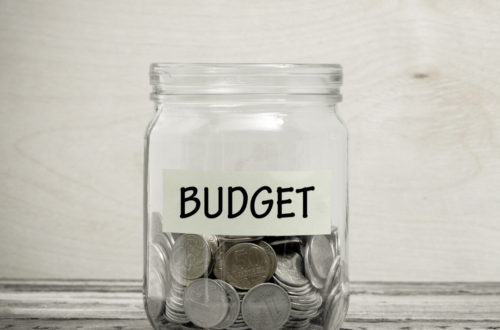Saving for a home while renting can be a challenge, but it is a goal that many renters aspire to achieve. When you live in a rented property, there is a sense of impermanence and a subconscious anxiety that might urge you to move into a new home, preferably one that has been built and is ready for you to move in.
One of the benefits of buying a quick move in home is that it provides a sense of stability and permanence that renting cannot offer. But in order to achieve that, you will have to organize the finances or save enough to finance such a purchase. And saving money is easier said than done. The more money you save, the harder it is to save.
In order to achieve that, firstly consider creating a budget and identifying areas where you can cut expenses and save more. This could involve reducing unnecessary spending, finding more affordable housing options, or negotiating lower rents with your landlord. Secondly, explore opportunities to increase your income, such as taking on a side job or freelancing. Additionally, be proactive in researching the housing market and staying updated on house-for-sale listings (visit www.kimlee.ca/house-for-sale-port-coquitlam/ to look at houses for sale, if interested). This will allow you to monitor prices and make informed decisions when you’re ready to buy a house.
Having a specific savings objective in mind, whether it’s creating an emergency fund, funding a bathroom remodel, or saving for a house deposit, provides a clear sense of purpose and serves as a driving force for saving money. With the funds you save, you can construct a home tailored to your preferences and desired layout, with the assistance of a home builder. This approach enables you to build your dream house in a cost-effective manner, staying within your budgetary limits. Additionally, it grants you a sense of ownership and pride in the home you have personally crafted.
Set yourself a savings goal
Saving money is easier said than done. The more money you save, the harder it is to save. As you’re saving, you’re no longer spending, which is why saving is so hard. But setting yourself up with a savings goal will make it a little bit easier. Whether you want to save for a rainy day, bathroom remodels, or even a house deposit, setting a goal is key to getting your savings going.
Open a down payment savings account.
Renting a house is a lot easier on the wallet than buying. But you need something for that down payment, and saving up can be a challenge. Fortunately, there are several ways to start saving. For starters, you can start savings account for your new home deposit. Open a savings account at a bank or credit union that has lower fees. You can set up automatic transfers from your regular checking account. That way, you don’t have to remember to make a transfer each month.
Look at where you can cut back.
Budgeting for a house sounds great, but when you’re renting, it can be especially difficult. Many landlords like (or require) good credit and may not have much regard for your actual income. So, as a renter, you must make do with what you have. Because you don’t have the down payment for a mortgage, you have a lot of choices to make when it comes to saving for a house. You can cut corners on some things and splurge on others. For instance, if you have an emergency repair needed around the house that requires professional attention from the likes of a Roofing contractor of Cape Coral, FL, or similar professionals elsewhere, you can choose to cut down on shopping or eating-out expenses for that month. Similarly, if you have a birthday coming up, and you know you will need to splurge a little bit, you can hold back on any non-urgent repairs and push them to the next month. But by implementing even a few of these tips, you can put your money to work for you, rather than letting it collect dust in your bank account.
Address your debt
Lowering your debt levels is step number one to start saving money for a house. You can begin by defining how much money you have coming in each month. Then, you can subtract all of your personal expenses from your income. Use this number to determine what you need to live on. Once you have this number, you can begin saving at least 10% of your monthly income. You’ll be surprised at how quickly you can save up for your down payment.
Look for a day job
Finding a day job is one of the most effective ways to save money while renting a house. This is because some jobs offer housing assistance, and you will also learn many valuable skills. Additionally, you can often earn more money than with a part-time job.
Apply for assistance programs
Building a new home can be an exciting prospect. However, financing a new home can quickly become an overwhelming challenge. Fortunately, federal, state, and local assistance programs help qualified individuals finance a new home. These programs can assist with down payment assistance, mortgage credit counseling, and other necessary home improvements. Contact your state’s Department of Housing and Urban Development (HUD) office to find the programs available in your area.
Make bigger changes
If you need to save money for a house while renting, your first order of business is to determine why you’re saving. Is it because you want to buy a home soon, or do you just want to have money saved up for emergencies? That will have an impact on what you should keep bumping up to and what you should leave alone. For example, if you foresee a big expense in six months, like a vacation or a wedding, it makes sense to increase your savings rate. However, if there aren’t any emergencies on the horizon, then there’s no reason to put more money into savings.
Saving for a house while renting is difficult for many people. Because rental costs tend to rise faster than wages, people find themselves in a predicament of how to save for a house when they rent. Fortunately, there are a few ways that people can save money while renting.





